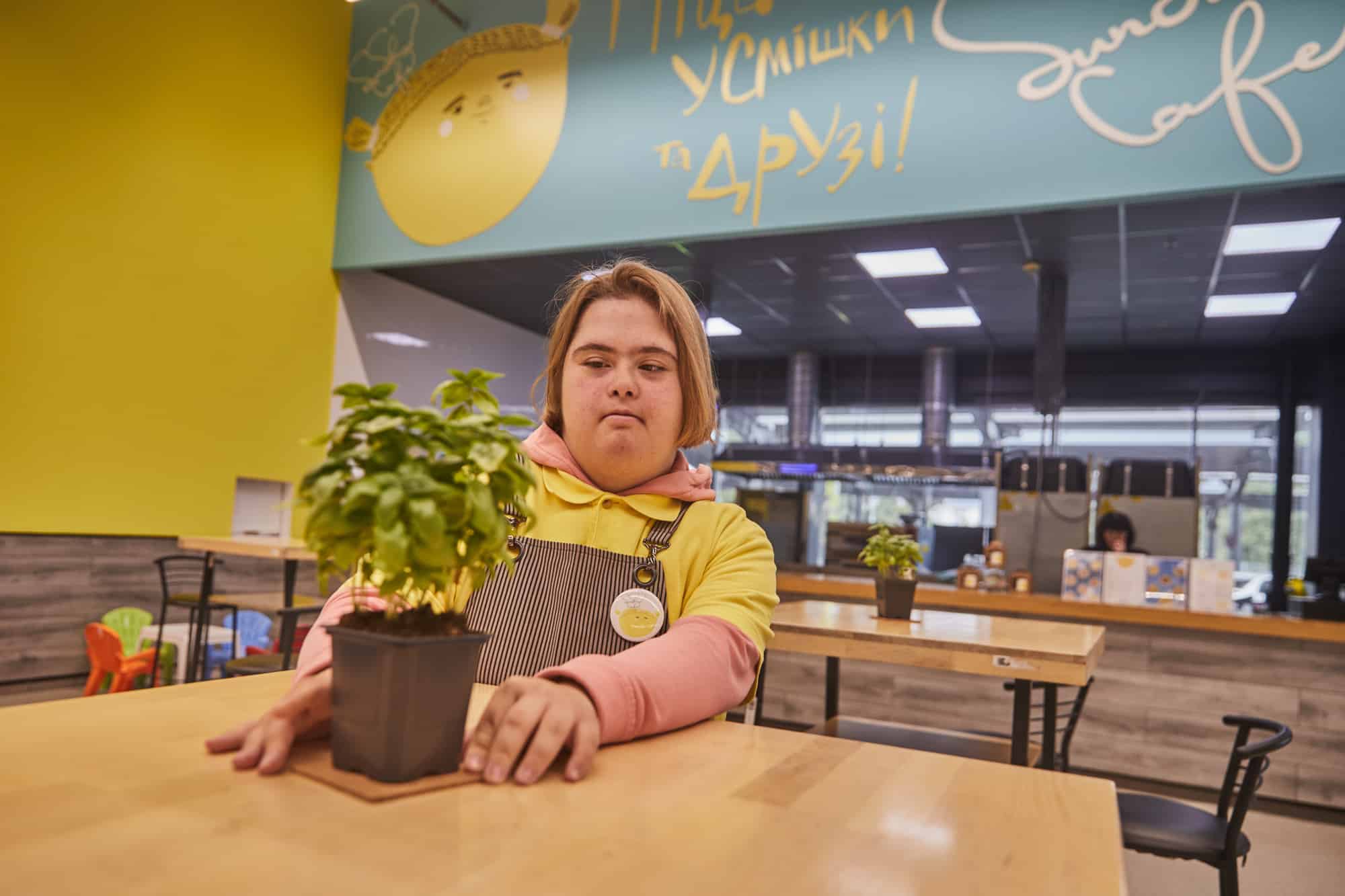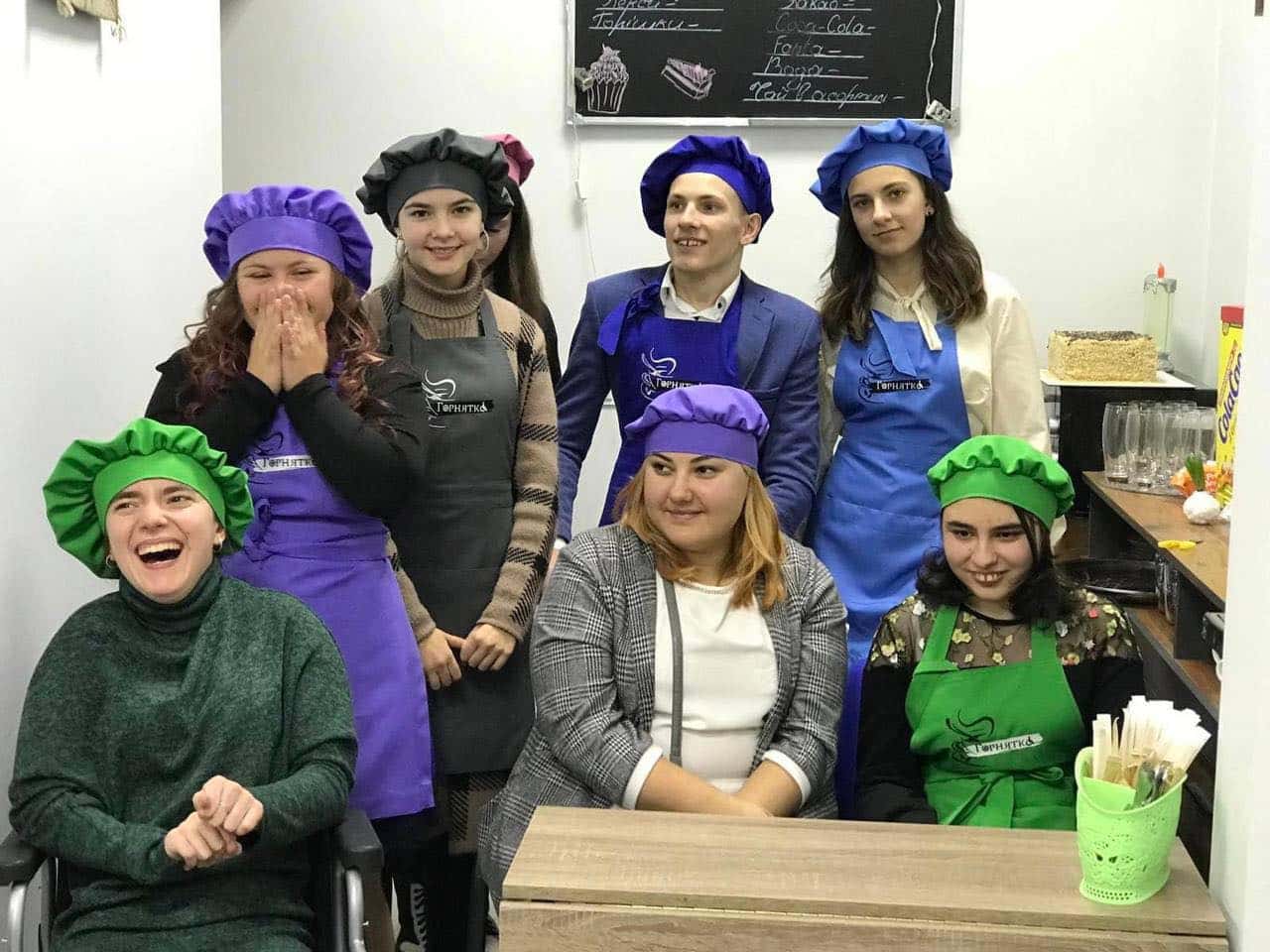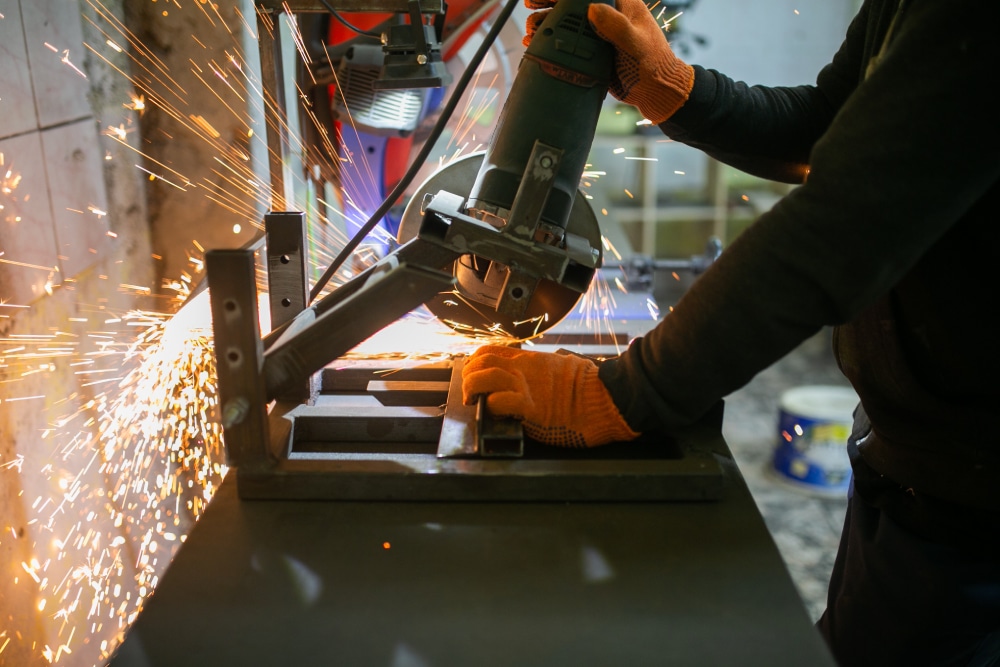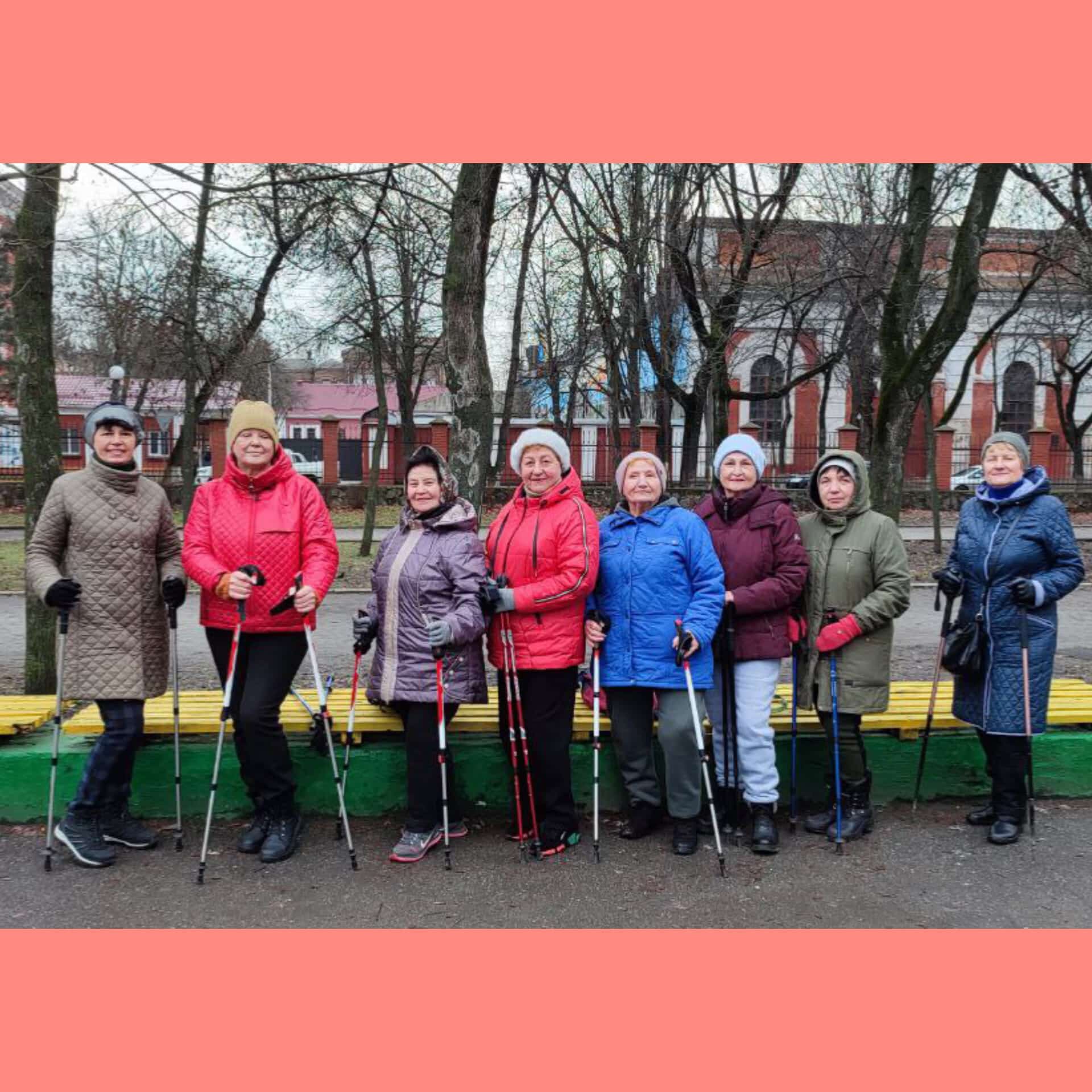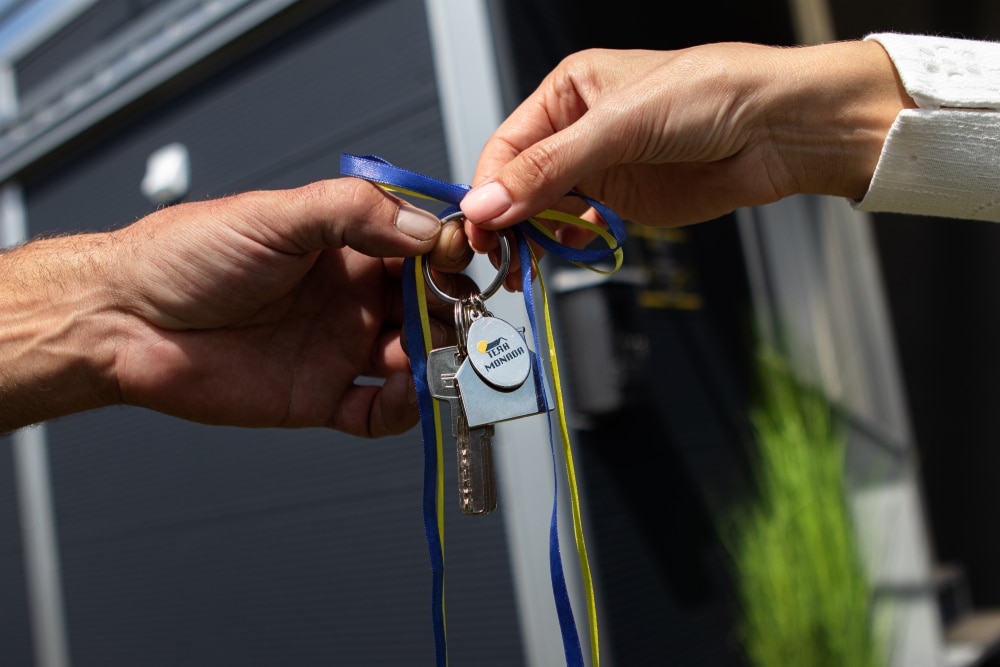The idea of Sunshine café was to employ youths with disabilities and Down syndrome. Customers are served with pizza here, while professional head chefs work alongside people with disabilities who have no experience in cooking. However, they are thirsty for work.
We visited the café and spoke to its founder, Alina Zhyvaho, about the opening of the café and the war, about work for youths with disabilities, prospects for development and her cherished dreams.
Pizza, smiles and friends
Morning begins with cleaning. Three people are on shift today, namely, Vlad, Nastya and Lena. They have already put their uniform on — yellow T-shirts, flip-flops and gray aprons. They wipe tables in the café that are waiting for customers to come. There is a large panoramic window at the end of the kitchen. It’s raining outside.
There is lots of sunshine inside, though. Bright uniform of the staff, yellow walls and a large yellow sign reading «Pizza, smiles and friends». There’s not much smiling as young cooks are a bit shy in the morning. Vlad, for example, says that he does not smile and that he exhibits serious behavior since he is on duty.
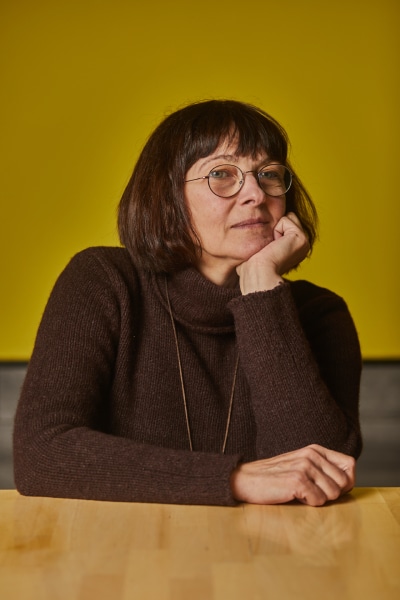
According to statistics, only 26% of Ukrainian adults with disabilities are employed in 2017. Alina Zhyvaho, the founder of the public organization «Soniachni Liudy» (the Ukrainian for «Sunny People» — translator’s note) informs us of another figure. She says that before the Russian full-scale invasion there were about 16-17 thousand of young people with Down syndrome in Ukraine. Only 8 of them had jobs. In other words, thousands of boys and girls, who finished schools and vocational schools, cannot grow professionally.
This problem strikes a chord with Alina Zhyvaho, since she is interested in employing and generally socializing people with Down syndrome for personal reasons. Alina gave birth to a baby girl and the first thing she heard was doctors urging her to abandon her child. Her daughter, Nastya, was diagnosed with Down syndrome. Alina says these were the hardest days of her life. She was faced with pressure from doctors, anxiety and lack of understanding what to do next. Alina’s father was adamant. He told the pediatrician to leave the ward after the latter advised Alina to abandon her daughter. The father took Alina and Nastya home. Now Alina can barely imagine her life without her daughter.
This is a story with a happy continuation. Nastya is 21 now and she has a job. She finished the boarding school Nr 5 in Kyiv. She was the first child with Down syndrome who was admitted to this educational facility. Before, children with visual impairment had learned there. After Nastya finished school, there were only two vocational schools that admitted youths with disabilities in the Ukrainian capital had. Nastya did manage to receive education there.
Sunshine café has become not only Nastya’s employer, but also that of her classmates. They all finished the same vocational school, having acquired the profession of a cook. They now make pizzas for the café’s clientele.
Alina has encountered the problem of other companies being quite reluctant to employ people with disabilities before, when she was searching for a place for Nastya to do an internship. In the end, her daughter found a place at the chain of supermarkets «Auchan». However, that did not come easy. Alina says organizations are often afraid of employing youths with disabilities.
However, for Alina this was a question of principle. She wants exactly these people to work in her café and serve clients. She wants the socialization to be a two-way street. For this end, she had the kitchen be designed as an open space, so that everyone ordering pizza could see those who are actually making it. Alina is planning to hire additional waiters. This was her initial idea but for the time being the clients keep ordering takeaway pizzas. The idea is that waiters in the café would contribute to communication inside, since its employees would not communicate with one another in a closed space, they would enter into dialog themselves.
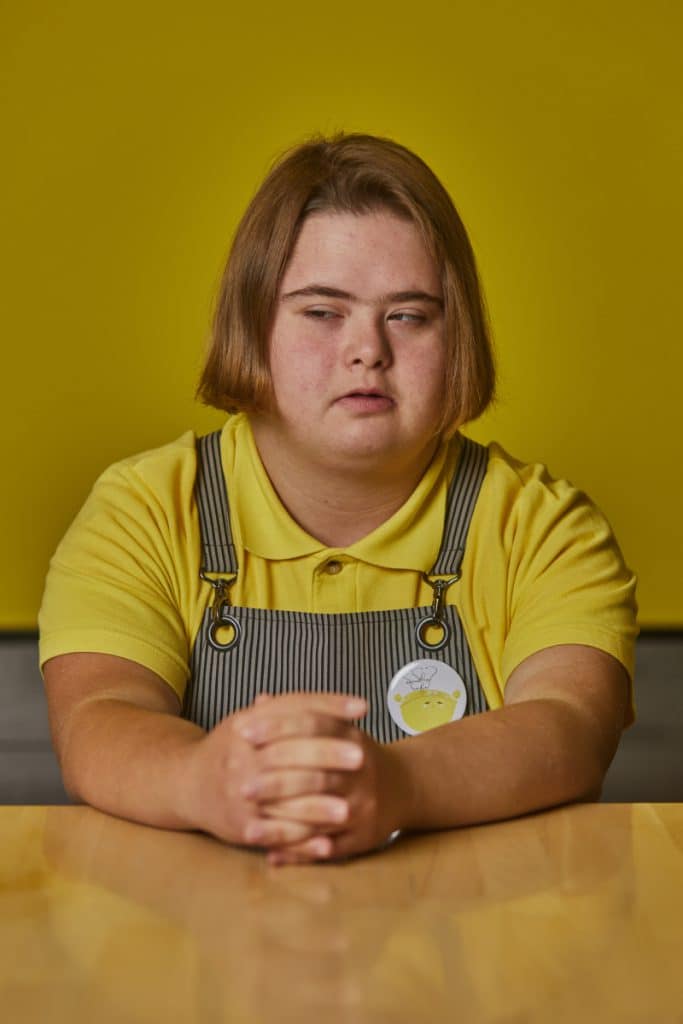
«I want the society to watch them, to know that these people are able to work and that they are just like everyone else. It is not only them who are socialized, but also the visitors» , says Alina Zhyvaho.
In 2021 Alina founded the public organization «Soniachni Liudy» to fulfill her dream of setting up a café. She has a degree in acting, having also gained experience in working in advertisement. She says she has spotted a tendency of organizations that take care of people with disabilities being launched by parents of such people. Given that this is personal, they have plenty of drive and energy to work on such projects.
How the war has affected the Sunshine café
The café was to have been opened on March 21, which is World Down Syndrome Day. These plans were thwarted by the war. Last January, 10 would-be employees began doing training, the first part of which was on communication lasting for 1,5 months. The second part was dedicated to identifying employees’ professional needs, which never took place in view of the beginning of the full-scale war. Before the war, Alina had managed to find partners and space for the café. The network of supermarkets METRO had agreed to offer its premises, equipment and kitchen utensils. A PR agency Havas Ukraine had designed visibility materials for the café.
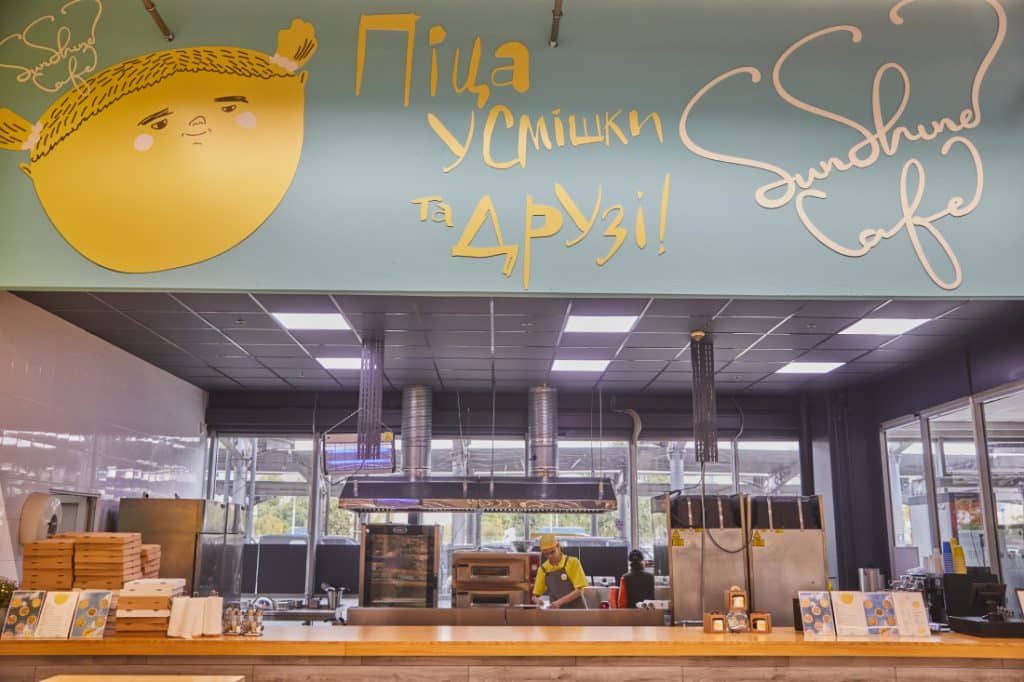
Three of the would-be employees left Ukraine and continued acquiring professional skills abroad. One boy with Down syndrome found a job in France as a gardener.
Alina left the city together with her daughter.
«We spent first two months of the invasion in the city of Tulchyn. It was quiet there. However, Nastya was homesick and she could not understand why things were different, since there were no explosions to be heard in Tulchyn. We then returned to Kyiv. An acquaintance of mine offered me to go to Ireland so that Nastya could be employed there. We chose not to. I called at METRO asking them if their offer was still on. That was how it all began».
A big dream
Sunshine café was opened quite recently, about a month ago. The work process is still being customized. The menu is going to be expanded, with panini or sandwiches being put on the list. Currently, only pizza (14 types of it), tea and coffee are offered in the café.
We are speaking to Alina while the staff are busy baking pizzas. She admits drawing inspiration from her French colleagues who opened a similar café five years back. At some point Alina was even thinking of launching a franchise in Ukraine. In the end, she chose to act her own way while deriving inspiration from her foreign colleagues.
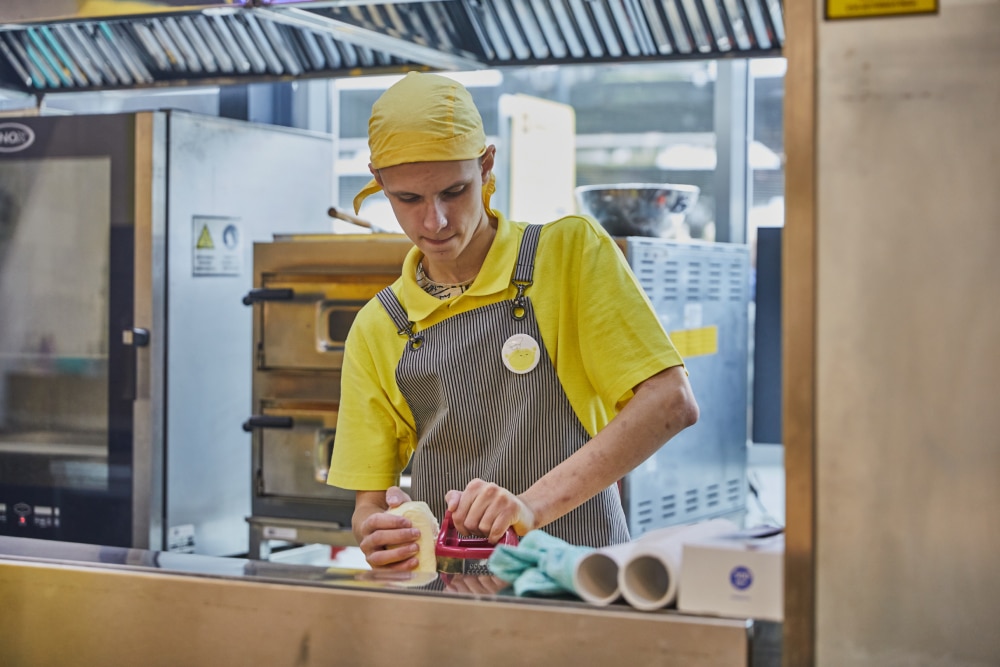
7 people from the initial composition of her team continue working today. They now make up the team of Sunshine café, with Lesya (who has 20 years of experience working in pizzerias) being chef cook and working together with her assistant. The team works in two shifts to distribute the workload. The age of the employees range from 19 to 26.
«One girl on our team has already made a pizza herself, under supervision, of course. She is very active. Those willing to achieve more are getting the hang of more complex processes and perhaps with time will be able to do more by themselves», Alina Zhyvaho says.
All of the 7 team members have finished vocational schools where they studied technologies and design. They used to be members of the same group, which means they know each other very well. They weigh dough for pizzas, roll it in the flour, slice ingredients, prepare boxes for pizza, put stamps on them, clean tables and brew coffee. Some of them enjoy cooking while others take pleasure in cleaning the café.
Alina would also want to hire another 3 members of her staff with Down syndrome as well as a therapist who would work with the team, asking them questions and analyzing their mental condition. She is now taking on these tasks herself.
We also talked about difficulties with work and socialization of the youths with disabilities. The reluctance of potential employers to assume responsibility and build the inclusive culture is not the only obstacle in the path of boys and girls with Down syndrome, mental disorder or cerebral palsy being employed.
Oftentimes these are their parents who are against it. Alina says she has already encountered situations when children were offered an internship but their parents refused to let it happen, explaining their decision by the need to bring their children to work and take them back home.
«We’ve got people with disabilities here, with not everyone of them being socialized. Often they just stay at home, so you can rarely see them outside. One may think they do not exist. Back in the Soviet Union when a person had a disability they would be put in some closed centers. They lived there, being kept out of public display. When I was a kid, I did not know this either. In our high-rise building lived a boy with Down syndrome. We did not understand it, we would go and take a furtive look at him, but nobody deigned to explain anything to us», Alina says.
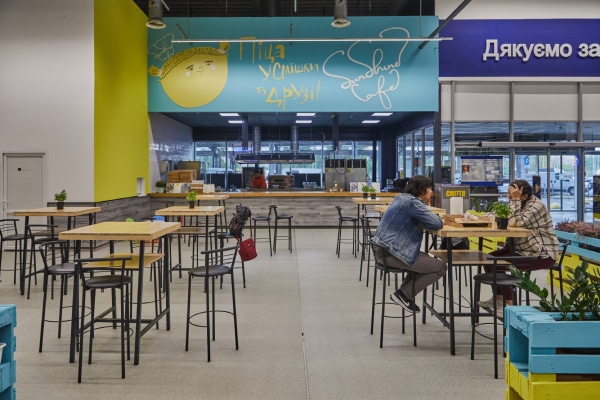
Society is developing by becoming more inclusive, although there are many things that leave to be desired. Alina says she has noticed such changes. For example, people do learn about the café, asking questions and willing to support it. The café is frequently visited by parents who have children with Down syndrome. They find it important to understand that their kids have the opportunity to work in future.
«Our coffee machine got once broken down. Two women came into the café to drink a cup of coffee. We apologized to them for not being able to offer them one. We said they could drink it in a café nearby. They said they did now want to drink coffee elsewhere, they wanted to have it exactly at our place», says Alina.
Her café feels support, willing to support others for its own part. A new project is going to be launched soon. Sunshine café will be baking free bread for the Ukrainian military and civilians living in the de-occupied territories. METRO will be providing all necessary ingredients, with Alina’s team actually doing the baking. She says they are going to have lots of work, which means youths will learn something new.
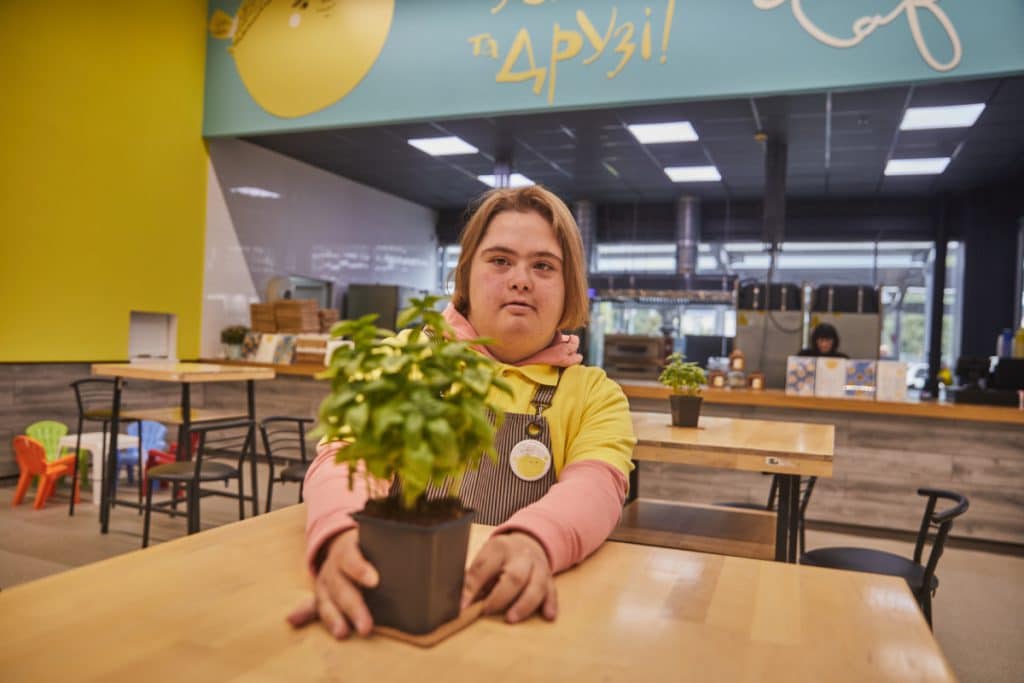
Alina has lots of plans — expand the menu, launch a mobile app, introduce delivery services and hire a bus that would regularly bring employees to the café. She says that ever since the café was opened many companies have contacted her, offering free services (e.g., the development of a mobile app).
Alina’s most important objective now is to draw attention of potential clients, so that people would get accustomed to the café, dropping by more regularly. After this goal is reached, she may think of expanding her business to other cities of Ukraine. Alina’s big dream is to open similar cafés all over Ukraine where youths with disabilities could work instead of staying at home.
Sunshine café is located on the Stepan Bandera avenue, 26v (in the shopping mall METRO)You can also subscribe to the café’s account on Instagram.

